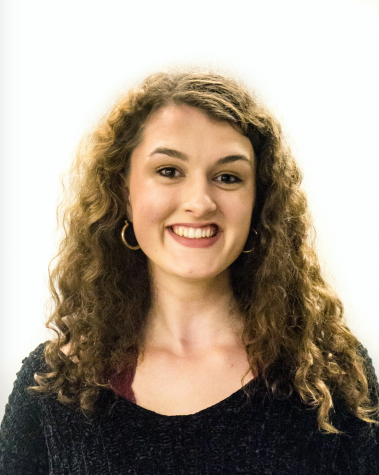On Sept. 25, during MCSG’s weekly meeting, Academic Affairs Committee (AAC) Chair Kofi Ofosu ’19 discussed possible changes coming to distribution and major requirements at the College.
“Over the past few weeks I’ve been talking to EPAG [Educational Policy and Advising Group] about distribution requirements and the graduation requirements,” Ofosu said. “They think there’s a checklist mentality among students, that students want to just breeze through these certain courses because they don’t relate to their major.”
“The faculty feel that defeats the purpose of a liberal arts education.”
Thus, EPAG is considering various reforms to address the problem – including limiting students to one major and one minor or concentration.
“Some people have double majors and minors and concentrations,” Ofosu said. “That kind of forces energy away from taking other classes in other fields, and that can be potentially harmful. What if we say limited it to, say, one major to one minor, that way students [would] have more room to take other courses in other disciplines.”
Currently, students are free to declare a second or third major without restriction. However, some of Macalester’s peer colleges have made it more difficult for their students to double major.
At Carleton College, students wishing to declare two majors must obtain approval of the chairs of the two departments concerned and petition the Academic Standing Committee for approval. Vassar College operates similarly.
Members of MCSG’s Legislative Body (LB) were interested Tuesday night in whether limiting students to one major and one minor would affect their job prospects as they compete with applicants who have completed a double major.
“The whole idea is that there are so many other positive qualities in taking other classes that your major alone will not give you,” Ofosu said. “Do you want students who just know one thing, or do you want to create students who have different approaches to solving problems? I would rather have someone with a broad kind of education and approach issues from different angles.”
MCSG President Malik Mays ’19 also raised a concern during the meeting.
“I understand what you’re saying about how it’s good to be well-versed in a variety of things, but when [employers] are looking at applicants on paper, how will they get that sense that [the students] have a breadth of studies, because they don’t always talk to students about the classes they’re taking. Has EPAG talked about that?”
Ofosu plans on voicing these concerns to EPAG at their next meeting on September 27.
Ofosu explained that another way EPAG may seek to widen the breadth of the curriculum is to reform the structure of First-Year Courses (FYC). EPAG is waiting to hear feedback from students who are currently enrolled in FYCs, specifically whether the students felt like the classes were an effective introduction to a liberal arts education.
According to Ofosu, EPAG is considering sponsoring a campus-wide event to gauge perceptions around distribution requirements and whether students feel disengaged from classes outside of their majors.
As of now, there is a sub-group of EPAG titled the General Education Requirements Committee (GERC). They approve applications for new classes to fulfill General Education requirements, such as Internationalism and U.S. Identities and Differences. These requirements are meant to have specific learning goals and outcomes, and every year GERC reviews those requirements and outcomes to ensure that students are meeting those courses’ academic goals.
Two or three years ago, the GERC extensively reviewed the college’s distribution requirements and issued a report.
After going untouched for several years, the report was recently added to EPAG’s agenda. Director of Academic Programs and Advising and Ex-Officio member of EPAG Ann Minnick participated in that discussion.
“One thing we thought we would do is get a sense from students about what are their views on [distribution requirements],” Minnick said. “Are they feeling like [their courses are] sort of boxes to be checked, or are they really getting out of it what we hope they’re getting out of it, which is that they’re getting different approaches to knowledge and different modes of inquiry?”
EPAG hopes to decide whether to begin a full analysis of the distribution requirements early this semester.
Macalester students also contributed to these reports.
“Erik Larson’s class, called Social Science Inquiry, in maybe 2008, had [done a study looking] at what graduating seniors thought about the first year course and how it integrated students into the institution and introduced students to different disciplines,” Minnick said.
That same course also did a report on students views of liberal arts distribution requirements. Ann Minnick recently sent all of the reports to GERC.
“We’re going to gather some more information and do our due diligence with this issue,” Minnick said.
Associate Professor of Geography Eric Carter, selected to EPAG last month, is playing an active role in the committee’s ongoing conversations.
“We try to be really proactive in examining our requirements and comparing them to what other schools do in terms of their general education requirements,” Carter said.
Ofosu will bring the MCSG’s feedback about the distribution requirements to the next EPAG meeting on Thursday, September 27.





Stephen Marshall • Sep 8, 2019 at 8:15 pm
What i don’t understood is actually how you are not actually much more well-liked than you might be right now. You’re very intelligent. You realize therefore significantly relating to this subject, produced me personally consider it from a lot of varied angles. Its like women and men aren’t fascinated unless it is one thing to accomplish with Lady gaga! Your own stuffs great. Always maintain it up!
Salvatore Whetzel • Jul 23, 2019 at 11:56 am
Mass parsite http://bit.ly/2W9CVkn